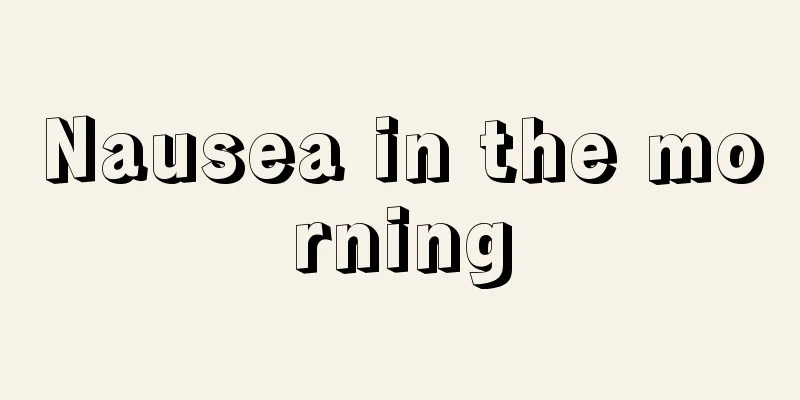What to do if your child has a stuffy nose when sleeping at night

|
Autumn is a time when the weather is relatively dry. In this season, many children will often have nasal congestion when they sleep. Most of the nasal congestion is caused by clear nasal discharge. If it is not cleaned in time, long-term blockage in the nasal cavity will cause nasal congestion. Most of the nasal congestion is related to colds, rhinitis, and nasal infections. It is necessary to find appropriate methods to treat it in normal times. First, let's take a look at what causes nasal congestion in children Children's nasal congestion and runny nose are caused, on the one hand, by the newborn's incomplete immune function, poor body resistance, and susceptibility to diseases such as colds; on the other hand, it is related to the anatomical structure and physiological function characteristics of the newborn's nasal cavity, such as the incomplete development of the newborn's maxillary bone and skull, relatively short nose and nasal cavity; sparse nasal hairs in the nasal cavity; the nasal mucosa is tender, and the blood vessels and lymphatic tissues are relatively abundant in adults. Therefore, once encountering cold air and airflow containing a large amount of bacteria, it can directly stimulate the nasopharynx, causing congestion and swelling of the vascular mucosa of the nasopharynx, increased nasal secretions and crusting, making the already narrow nasal cavity even narrower or even blocked, thereby reducing the body's oxygen intake and hindering the excretion of carbon dioxide. Nasal congestion in newborns is common due to upper respiratory tract colds. Secondly, diseases of the nasal cavity itself, such as nasal polyps, deviated nasal septum, foreign bodies in the nasal cavity or tumors, can cause nasal congestion. Certain drugs can also cause congestion and swelling of the nasal mucosa and lead to nasal congestion. For example, if pregnant women take the antihypertensive drug reserpine, it can cause nasal congestion in newborns. In addition, certain allergic reactions can also cause nasal congestion. Diseases that cause nasal congestion in children 1. Cold and stuffy nose Symptoms: nasal congestion and runny nose, slightly red sides of the nose, and sometimes accompanied by fever. Because the baby's body temperature regulation center is not fully developed, the nasal mucosa is tender and weak, and the respiratory tract defense is poor, it is easy to catch a cold. Subsequently, acute edema of the nasal mucosa occurs, causing nasal congestion. 2. Acute sinusitis and nasal congestion Symptoms: In addition to nasal symptoms such as nasal congestion, runny nose, and mouth breathing, more serious symptoms include fever, headache, sore throat, and irritability. Babies with repeated upper respiratory tract infections may affect the sinus mucosa. 3. Nasal crust obstruction Symptoms: Nasal crusts adhere to the outer opening of the nasal cavity or deep inside, blocking the narrow nasal passages. The nasal mucosa has a normal amount of secretions every day. Since babies cannot blow their noses, if mothers do not clear the secretions in their babies' nasal cavity in time, the secretions will accumulate in the nasal passages. Over time, the accumulated secretions will dry and harden to form nasal crusts. 4. Blockage by foreign matter Symptoms: Most of the time, one side of the nasal cavity is blocked and ventilation is poor; if secondary infection occurs, the mucus gradually becomes purulent; if the foreign body stays for too long, the nasal mucosa may become eroded, granulation tissue may grow, bloody nasal discharge may occur, and a foul odor may be emitted. Babies aged two or three are very curious. Sometimes they play with small stones, small building blocks, small whistles, buttons, small erasers, bottle caps, and paper balls, and like to put these small things into their noses. Sometimes they will eat sunflower seeds, peanuts, fried beans, and nuts while putting these things into their nasal cavities. Because the baby's nasal cavity is small, once these things are stuffed in, the baby cannot take them out by himself, and he dare not tell his parents, and then forgets about it, so the foreign objects remain in the nasal cavity. Some babies suffer from nasal vestibule eczema, and because of the itching, they use stuffing and rubbing to relieve the itching. |
<<: What to do if your child has a stubborn temper
Recommend
What are the symptoms and treatment of mumps in children?
The symptoms and treatment of mumps in children a...
The dangers of enlarged tonsils in children
For children, the immune function is not yet full...
Why does my eight-month-old baby toss and turn when sleeping?
The baby is the apple of the parents' eyes, a...
What are the sequelae of baby's fever and convulsions?
We don’t know much about the sequelae of our baby...
What are the symptoms of a baby’s brain being burned out?
The problem of damaging the brain is the biggest ...
What should I do if my child has a high fever of 40 degrees?
Generally in summer, children often have fever sy...
What are the folk remedies for treating children's enlarged tonsils?
Children usually like to eat snacks and do not pa...
Why does a child sweat on his head when sleeping?
We all know that children are naturally lively an...
How to make complementary food for a one year and three month old baby?
When the baby is one year old, his body basically...
Treatment of nasal congestion in three-month-old babies
I don’t know if you have ever encountered a three...
What to eat for children with impaired vision
Not only is the social pressure high, but childre...
How much water does a three-year-old baby drink a day
A three-year-old baby has no ability to take care...
How to treat acute pharyngitis in babies
As parents, we are most reluctant to see our babi...
Why is the baby crying all the time?
We all know that babies who keep crying always gi...
What to eat for babies with stomach problems
Babies are the hope of their parents, and taking ...









